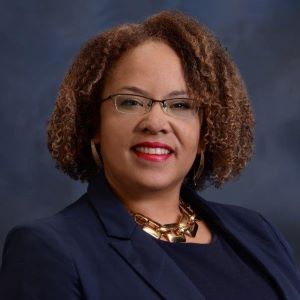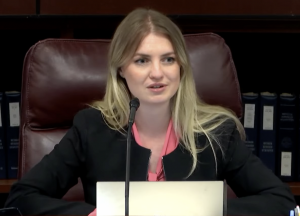Nevada Democrats mimic the policies of their California colleagues in the numerous tax hikes proposals making their way through the Nevada legislature
By Megan Barth, The Nevada Globe, April 7, 2023
The many reasons why people from all over the country, especially from California, move to Nevada is due to the fact that we do not have a state income tax as prohibited by the Nevada Constitution. Yet, Nevada Democrats mimic the policies of their California colleagues in the numerous tax hikes proposals making their way through the Nevada legislature.
Although Governor Lombardo “sees no reason” to raise taxes, the power of his veto pen will only hold as long as the State Senate does not fall into a Democratic supermajority in 2024. Should Democrats take one more seat in the State Senate in the next election, state Democrats will have supermajorities in both chambers giving them the ability to override his veto.
Should this happen, working Nevadans will likely be subjected to numerous tax hikes which will directly fund a growing bureaucracy. It is consistently claimed that raising taxes will better education, reduce homelessness, and uplift the indigent. However, educational outcomes have plummeted and homelessness and poverty has increased throughout the Silver State despite a continued increase in a variety of taxes/fees and government spending.
Democratic State Senator Dina Neal latest and recycled tax proposal comes in the form of a digital tax.

The Nevada Current reports that Sen. Neal is proposing, for the third time, Senate Bill 396. During a committee hearing, Neal said, “Our sales tax statute needs to change. This moves us in that direction.”
Neal, who also chairs the senate revenue committee, has reintroduced her digital goods tax bill, Senate Bill 396. It would essentially broaden Nevada’s sales tax base to include digital products like ebooks and streaming services, which are not currently subjected to sales tax even though their physical predecessors and counterparts are.
SB 396 would prevent continued erosion of the sales tax base by digital products, said Neal. The bill lists specific digital products, like downloaded video games, television streaming sites and ringtones. But it also includes a catchall phrase of “other digital products” that would capture future products or services that might not exist today.
The Legislative Counsel Bureau predicts this tax would bring in $25 million over a biennium. That would move the economic forecast for the upcoming biennium from $3.925 billion in sales tax revenue to $3.950 billion.
Another tax bill sponsored by a majority of Democrats and Sen. Neal is a hike in the state property tax.
As reported by The Globe, the Democratic majority has proposed legislation to eliminate the property tax cap, currently at 3 percent, to a nearly- tripled 8 percent, should Democrats and Republicans pass Senate Bill 96. Currently, property taxes on homes for most Nevadans cannot be increased more than 3 percent each year. Under SB 96, property taxes would be guaranteed to increase by at least 3 percent all the way up to as much as 8 percent annually.
According to the Nevada Policy Research Institute: “Among reasons the 3 percent cap was put in place years ago was to prevent individuals, particularly retirees and those on fixed incomes, from being priced out of their homes by skyrocketing property tax rates. In addition Nevada has a billion-dollar surplus and does not need to raise taxes.”
In spite of record-breaking billion dollar revenues the Silver State has been enjoying, Democrats have been vying for years to eliminate the property tax cap to fund capital expenses for schools, development and education.
Senators Dallas Harris and Melanie Scheible have sponsored yet another tax bill. Senate Bill 318 would allow cities to impose a $25 annual sewer tax that would fund homeless/indigent services and housing.

Residents of Reno should be rightfully concerned as they, and the Washoe County School District, are facing an additional Storm Water Utility tax proposed by the City Council. According to the City of Reno website, the average fee per homeowner would be an initial $13.49 per month starting July 1, 2023. The tax is subject to automatic, annual increases based on the Consumer Price Index.
If the Reno City Council approves this tax, Reno residents and businesses in Damonte Ranch would be subject to two taxes per month for sewer infrastructure. Should this bill pass, Damonte Ranch residents would be triple-taxed for sewer services.
The Washoe County School District has voiced their concern in a letter which outlines the significant tax burden the financially-strapped school district would realize. WCSD operates 54 facilities and would be subject to an additional, annual tax of $575,000 or the “annual salary of approximately 10 school teachers.” The annual tax increases tied to CPI would cost the district $6.3 million over 10 years.
Additionally, the district points out that this tax has been discussed for years and has increased by 60 percent over two years without proper explanation and will automatically and indefinitely increase without public input or council oversight:
As previously reported by The Globe, another bill to raise taxes to pay for homeless/indigent services and housing is Senate Bill 68.
The Clark Regional Behavioral Health Policy Board, the Nevada division of the Department of Health and Human Services submitted SB 68 which raises the property transfer tax by ten percent in order to fund “certain purposes relating to very low income housing, supportive housing and supportive services” for people with mental health conditions, disabilities, and low income.
This bill increases the Real Property Transfer Tax, a tax paid to the fund when you buy a home, from $1.95 per $500 of value or fraction thereof by 20 cents per $500. According to Zillow, the average cost of a home in Nevada has risen 3.9 percent over the past year to $409,008. If this tax increase passes the legislature and is signed into law, the real property transfer tax increases from $1,595.13 to $1,758.73. This tax would apply to residential, commercial, and retail space sales.
According to the Institute for Policy Innovation, the total U.S. tax burden including federal, state and local taxes and hidden taxes is equal to 56 percent of annual personal consumption spending. When a household is spending over half its’ income on government, perhaps the size of the government is the problem?
“If Nevada Democrats get their way, our state will be less affordable to families, less friendly to business, and less prosperous for generations to come,” said Better Nevada PAC spokesman John Burke. “One of the many reasons Nevadans voted for Governor Lombardo was because of his opposition to taxhikes. By pushing these tax increases, Nevada Democrats are ignoring the will of the people and pushing a big government agenda that would only take our state backwards.”